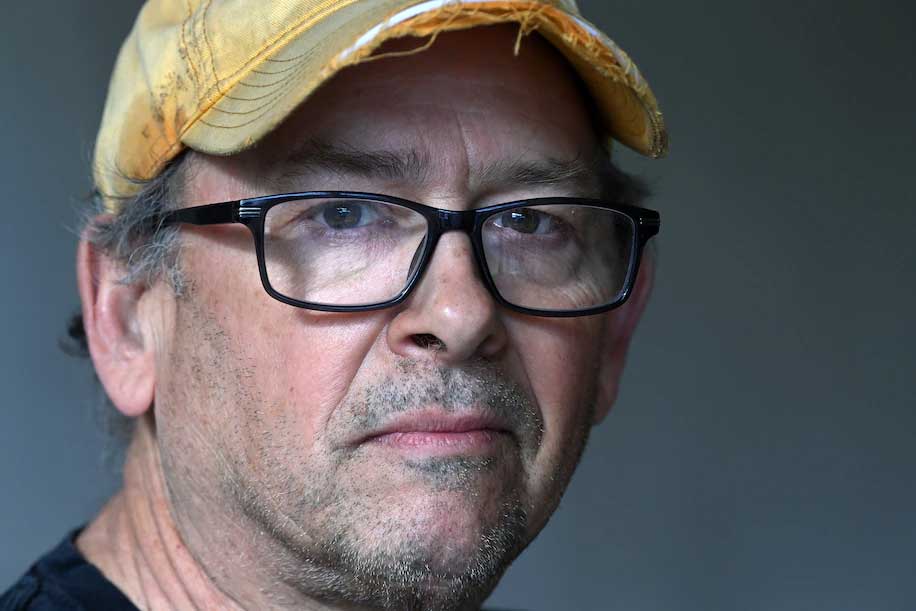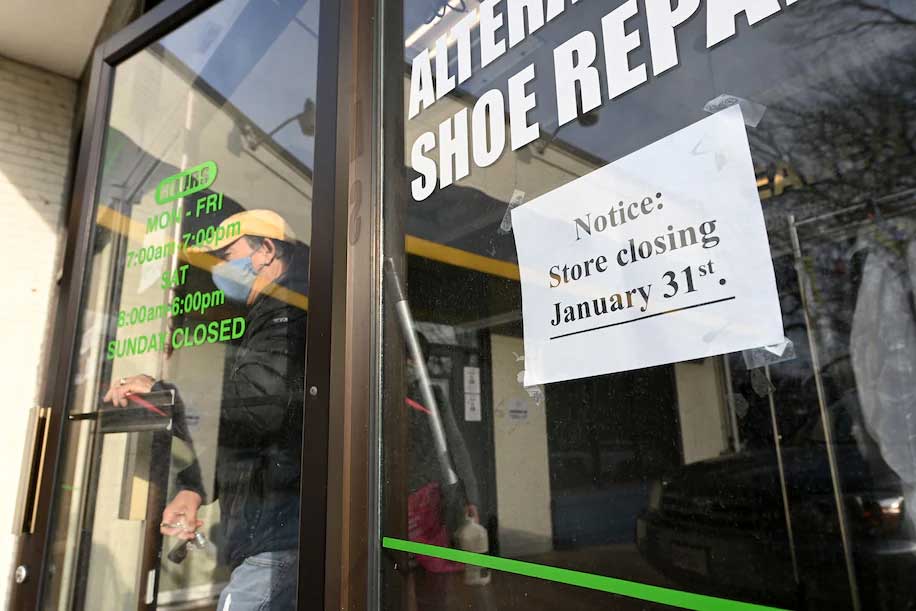
Gary and Chong Whitesides had for the past three decades run a dry-cleaning business in Alexandria halfway between the two shops, and they hoped they might inherit some customers to lift sagging profits at Auburn Cleaners. But the pandemic eventually shut them down, too.
“Whatever they had left over wasn’t enough to give us a big boost,” Gary, 61, said of the extra customers as he swept the tile floor of his gutted storefront on East Glebe Road last month. “It’s just an example of how far down business has gotten. When people aren’t going out to work, they’re not bringing clothes in.”
Nearly two years after the pandemic changed daily life, the divergent economic consequences for small businesses in Northern Virginia and beyond are familiar: There are the mom-and-pops that managed to hobble through and those that couldn’t make it. The entrepreneurs who found a way to pivot — to contactless “ghost kitchens” or online-only yoga — and the family-run outfits still praying for some kind of return to normal.
Auburn Cleaners was firmly in the latter camp until the omicron variant of the coronavirus and its staggering number of cases delayed a return to the office. The blazers and blouses would stay inside closets a few months longer, and the Whitesideses decided that was it: They would leave the storefront where they and a handful of employees had cleaned, pressed and packed since the couple purchased it in the early 1990s.
It was another dry cleaner lost to the coronavirus — the third casualty on a stretch of about eight blocks and a much larger omen for an industry that may never recover. Some trade groups expect that, by December, 30 percent of dry-cleaning businesses operating before the pandemic will have closed.
In the D.C. region and other large metro areas, dry cleaning has long been seen a vehicle to the middle class for immigrant families, many of them Korean Americans who settled here in the 1970s through 1990s, industry experts say. There were low barriers for entry and limited need for language skills, not to mention a community of other store owners often willing to help with loans and training.
But even before the pandemic, many of those independent stores were bracing for change: Their U.S.-born children were choosing not to take over the family business, opting instead for white-collar fields. Even in buttoned-up Washington, offices were loosening their norms for professional attire and lessening the need for professional cleaning.
“At one point, you had casual Friday, and then you went to casual every day,” said Mary Scalco, the chief executive of the Drycleaning & Laundry Institute, a trade group based in Prince George’s County.
Chong Whitesides, who immigrated to the United States from Korea as a teenager, had grown up working in her family’s dry-cleaning stores and stuck around the business while Gary worked in telecommunications at a U.S. Army base in Maryland.
After they moved to Northern Virginia in the early 1990s, she decided to start her own business. The couple purchased the Auburn Cleaners store on East Glebe.

The number of dry cleaners has remained relatively flat in Alexandria for the first half of the pandemic, according to the city’s economic development data, dropping from 54 in January 2019 to 50 at the same time last year. But trade groups warn that the worst is yet to come.
Peter Blake, the executive director of the Mid-Atlantic Association of Cleaners, which represents 350 storefronts in the District, Maryland, Virginia and West Virginia, said that the number of closed outlets — about 10 to 15 percent of the industry — could double by the end of this year.
But as the original coronavirus gave way to the delta variant, which gave way to omicron, the outlook for the Whitesides was grim.
Auburn Cleaners received two rounds of loans through the Paycheck Protection Program, which “were enough to keep us going for a while,” Gary said. (Some other business have relied on a special tax credit that was phased out in a federal infrastructure package last year, though industry groups are pushing to have it extended through March.)
The Whitesideses went through their savings. They crunched the numbers. They had some customers hanging on — and still do, even as they’ve shifted some operations out of a storefront entirely.
But the rest of their clientele, he fears, will simply never return.


